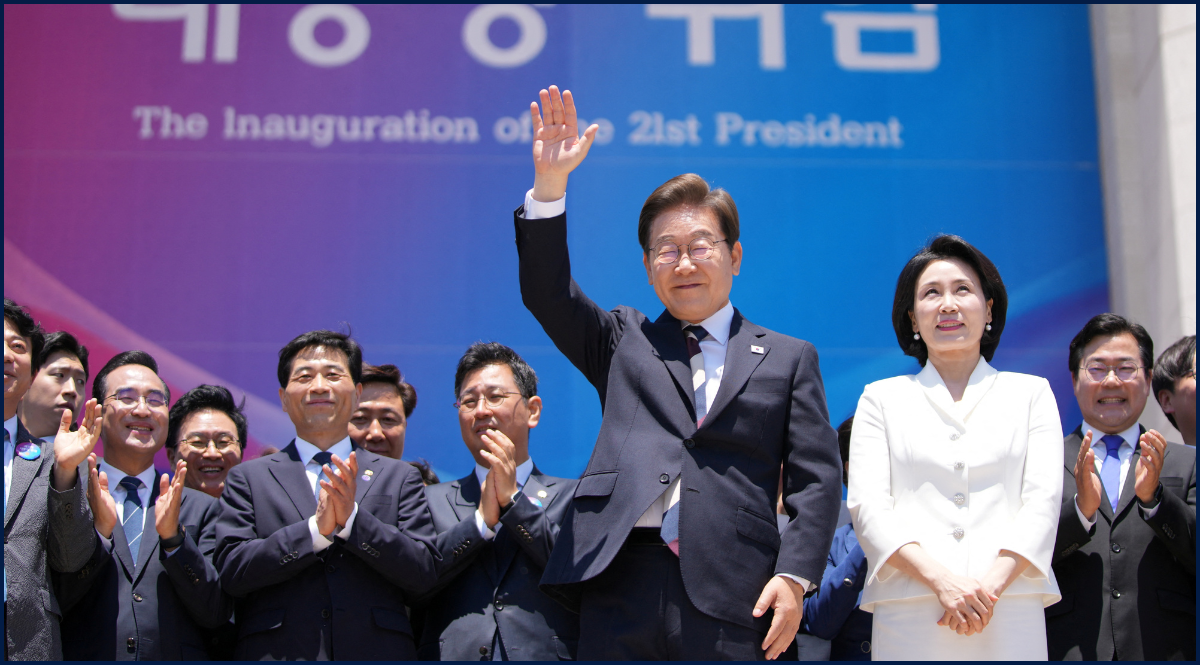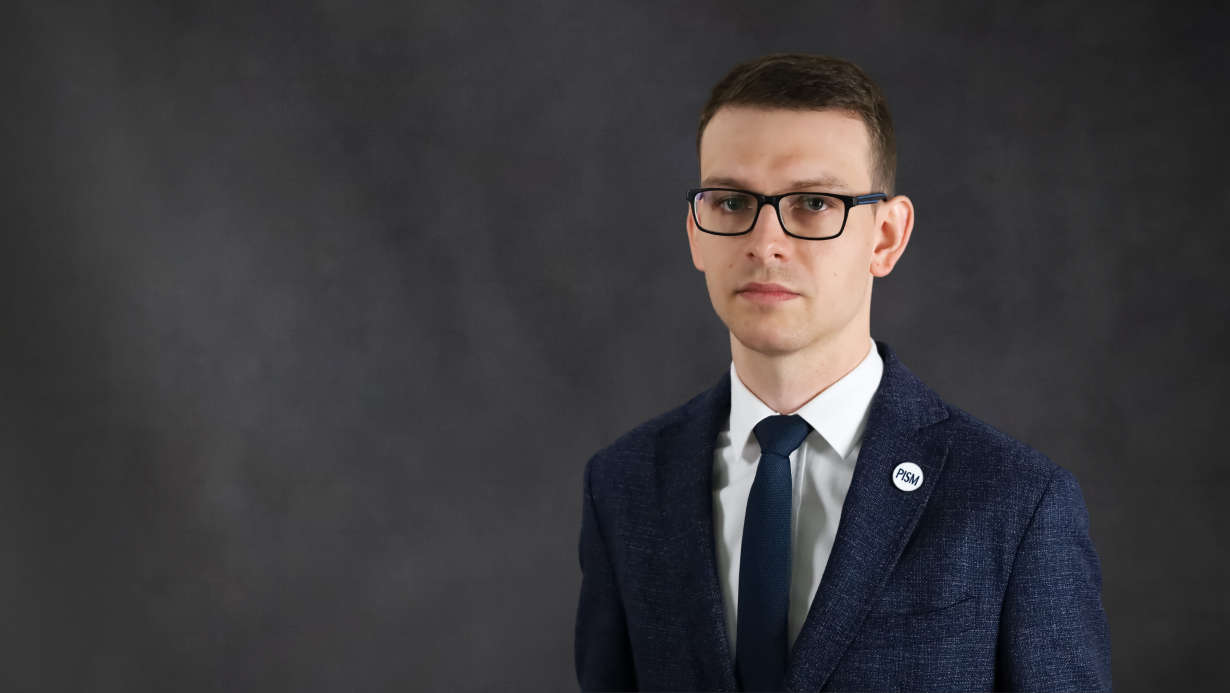South Koreans Elect Lee Jae-myung as President
Lee Jae-myung’s victory in the snap presidential election on 3 June brought an end to the internal political crisis in South Korea that was initiated by former President Yoon Suk-yeol’s imposition of martial law in December 2024. While the victory of the leader of the Democratic Party of Korea (DP), which holds the parliamentary majority, creates the possibility of stable governance, it does not mean an end to the deep socio-political polarisation. In terms of foreign policy, Lee intends to develop the alliance with the U.S. and prioritise economic interests, which could lead to closer cooperation between South Korea and the EU and Poland.
 credit: Lee Jin-man / Reuters / Forum
credit: Lee Jin-man / Reuters / Forum
What were the results of the election and what factors determined them?
With 49.42% of the vote, Lee Jae-myung secured victory, for which a simple majority is sufficient. His main rival, Kim Moon-soo of the conservative People’s Power Party (PPP), from which Yoon also hails, won 41.15% of the vote. Lee Jun-seok of the conservative New Reform Party came third with 8.34% of the vote. Turnout was 79.38%, the highest since the 1997 presidential election, when it reached 80.7%.
Lee’s victory was driven by the public’s anticipated desire for political change following Yoon’s impeachment. The campaign’s main themes were restoring stability and rebuilding citizens’ trust in the state. As leader of the main opposition party, Lee positioned himself as a politician of real change, in contrast to Kim, who was associated with continuity (he had served as labour minister in Yoon’s administration). To appeal to a wider electorate, Lee presented himself as a pragmatic, centrist candidate during the election campaign. This enabled him to win over some undecided and conservative voters. The DP candidate’s victory was not determined by differences in political platforms, as Lee and Kim’s views were similar on many issues, particularly socio-economic ones. What worked in Lee’s favour was the division within the conservative camp, which resulted in its electorate being split between the two candidates.
Who is the new president?
Lee Jae-myung took over as head of state immediately after his election. He has been one of the leading figures in South Korean politics for over a decade. He comes from a large, but poor family. Prior to studying law, he worked as a manual labourer. This life experience shaped his leftist views and enabled him to cultivate an image as a politician who understands the needs of the poorer parts of society. Prior to his political career, he worked as a civil and human rights lawyer. During his time as mayor of Seongnam (South Korea’s 10th-largest city) from 2010 to 2018, and as governor of South Korea’s most populous province, Gyeonggi, from 2018 to 2021, he gained a reputation as an effective administrator. He has twice run for the presidency. In 2017, he lost the primaries to the future president Moon Jae-in. In 2022, he lost to Yoon by the smallest margin in South Korean history (0.73 percentage points). Lee is a controversial and polarising figure due to his outspoken views (which he softened during the campaign) and allegations that he broke the law while in public office. Five criminal trials are pending against Lee, including one for corruption, but no final verdict has yet been reached in any of them.
How will Lee’s election influence South Korean domestic politics?
Lee Jae-myung is the first liberal president in the country’s democratic history to take office with a favourable parliamentary majority (171 out of 300 seats). This will make it much easier for the new administration to govern and pass laws. This is in stark contrast to Yoon Suk-yeol, who ruled without a parliamentary majority throughout his entire term in office. The new government’s projects will promote economic development and innovation, including investment in modern technology. Lee favours close cooperation between the government and the private sector, including large corporations (chaebol), but also advocates improvements for workers and a greater role for trade unions. He also plans to provide greater support for newlyweds and parents in an attempt to improve South Korea’s demographics. Importantly, he has promised accountability for those responsible for the imposition of martial law.
However, the strong mandate enjoyed by the Liberals does not signal an end to the political disputes and high levels of social polarisation, both of which have deepened over the last six months. These divisions are reflected in the continued high level of support for the conservative option, whose two candidates collectively received more votes than the president. In the short term, political disputes may be exacerbated by the controversy surrounding Lee’s criminal trials. The DP is pushing for legislative changes to suspend these trials while the president is in office, as he is immune from criminal prosecution under Article 83 of the constitution. However, the president’s political opponents argue that this immunity should not apply to cases initiated prior to his presidency.
What can the election results mean for South Korea’s foreign policy?
As the president lacks international experience, his closest associates and advisers, who will soon be made official, may have a significant influence on the formulation of foreign policy. Lee presents himself as a pragmatist who believes that foreign policy should primarily serve South Korea’s economic interests, including diversifying export markets and supply chains. The alliance with the U.S. will remain the cornerstone of South Korea’s foreign and security policy. Lee considers an agreement with the U.S. administration on tariffs to be the most urgent task. Lee advocates maintaining stable relations with China, South Korea’s main trading partner. His approach to Russia is unclear, although he may see it as a potentially attractive economic partner despite its cooperation with North Korea. For the campaign, Lee has toned down his traditionally critical views of Japan, promising to continue cooperating with the country, including in trilateral cooperation with the U.S. However, he may raise the issue of reparations for crimes committed during Japan’s occupation of Korea between 1910 and 1945 more often than his predecessor did. Lee advocates improved inter-Korean relations, but acknowledges that North Korea’s confrontational stance will prevent a breakthrough in the short term. Taking South Korea’s international activity into account in terms of its economic interests will lead to closer cooperation with the European Union and its Member States, including Poland. South Korea will continue to have an interest in investing in Poland and implementing arms contracts.



.png)
.png)